
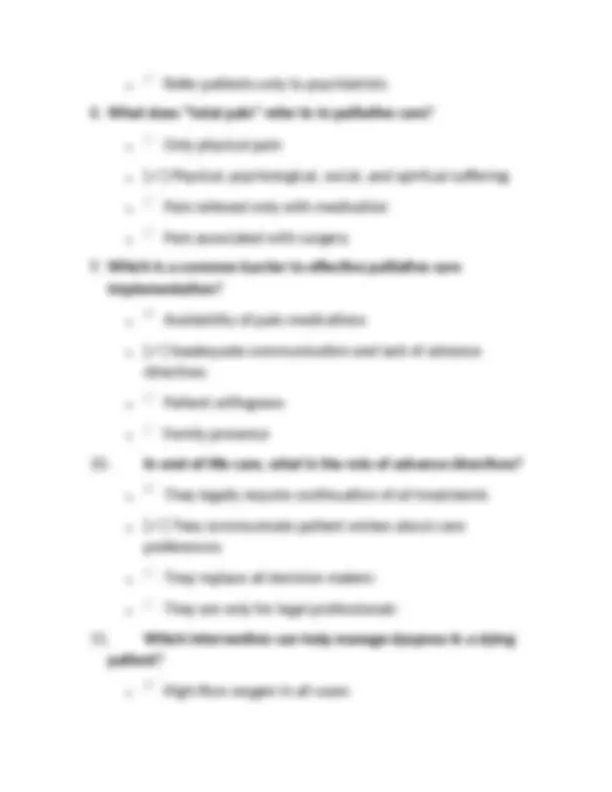
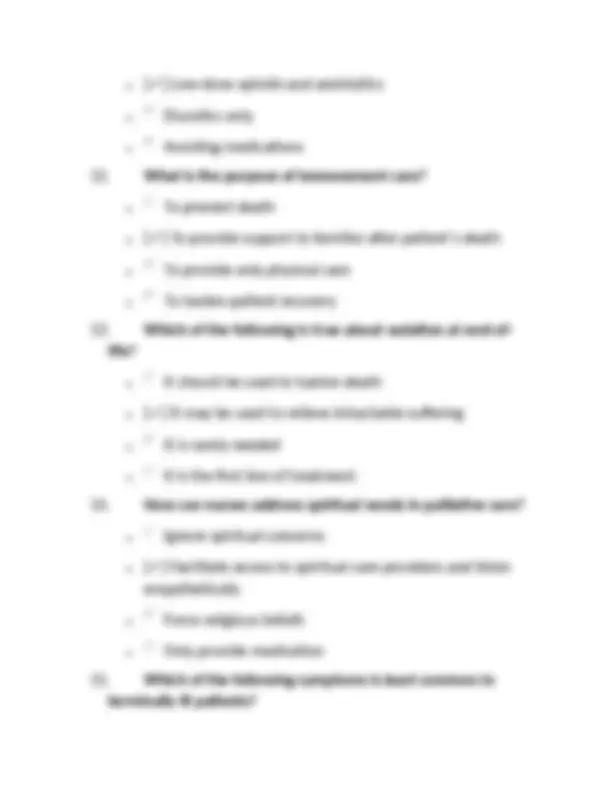
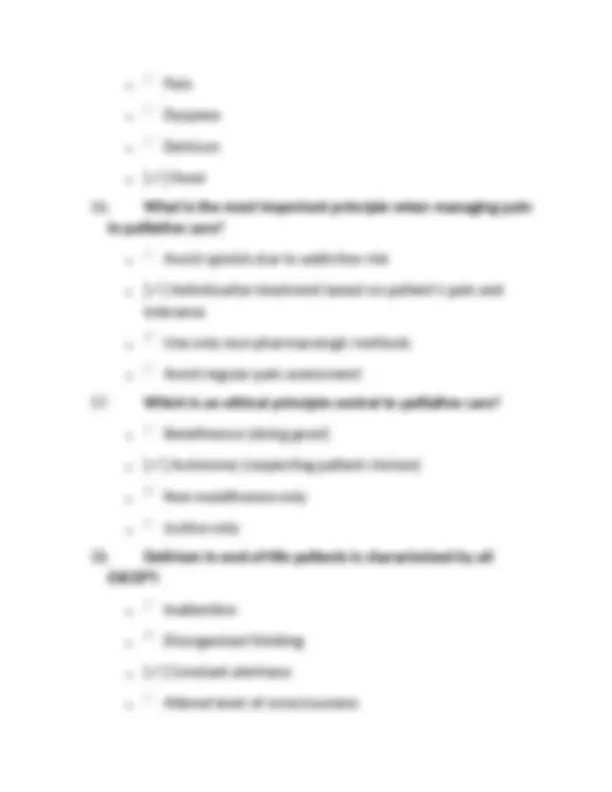
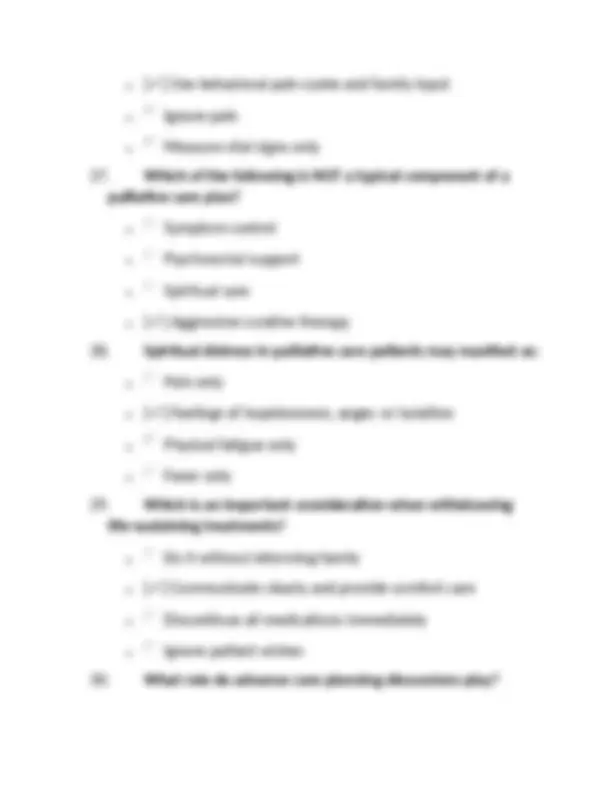
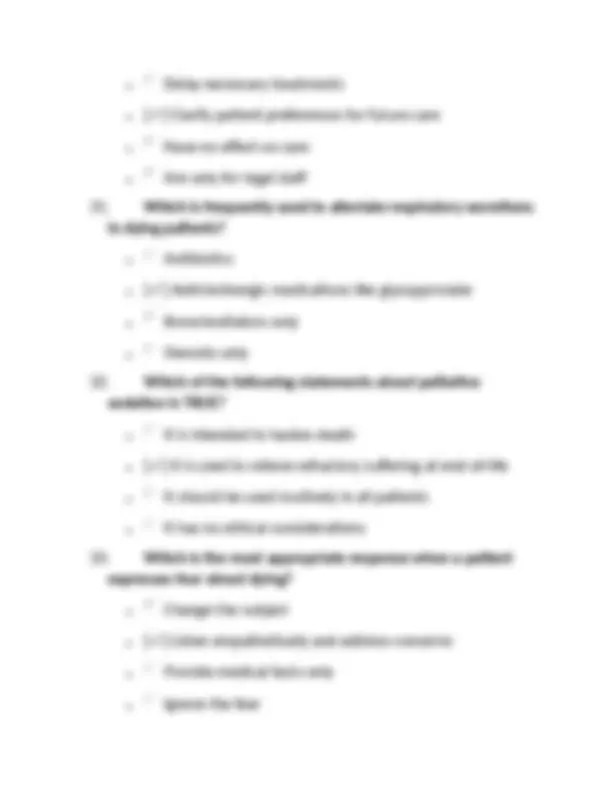
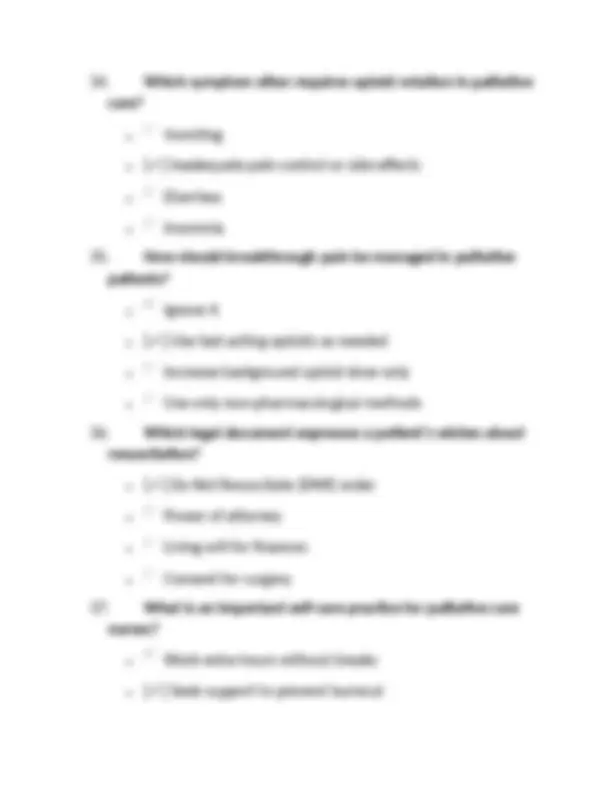
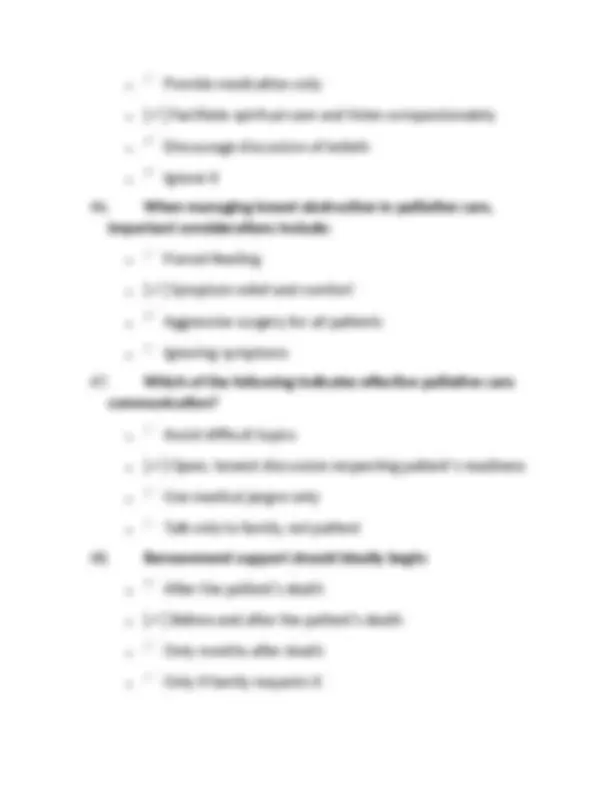
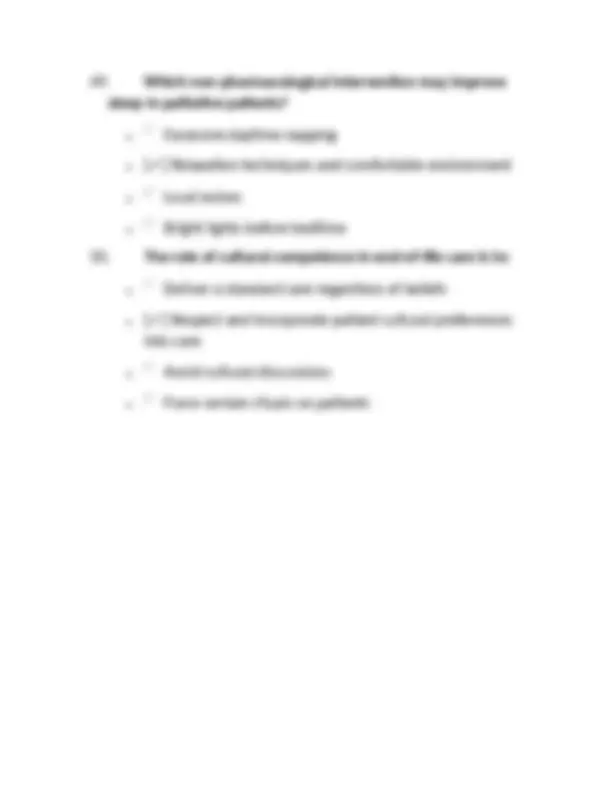


Study with the several resources on Docsity

Earn points by helping other students or get them with a premium plan


Prepare for your exams
Study with the several resources on Docsity

Earn points to download
Earn points by helping other students or get them with a premium plan
Community
Ask the community for help and clear up your study doubts
Discover the best universities in your country according to Docsity users
Free resources
Download our free guides on studying techniques, anxiety management strategies, and thesis advice from Docsity tutors
Palliative and End-of-Life Care: Principles, Symptom Management, and Psychosocial Support.
Typology: Exams
1 / 14

This page cannot be seen from the preview
Don't miss anything!









o [✓] Care focused on comfort for terminally ill patients, usually at home or hospice facility o Acute care for emergency patients o Rehabilitation care after surgery
o [✓] Low-dose opioids and anxiolytics o Diuretics only o Avoiding medications
o Pain o Dyspnea o Delirium o [✓] Fever
o Encourage vigorous exercise
o [✓] Use behavioral pain scales and family input o Ignore pain o Measure vital signs only
o Avoid discussing feelings o Ignore emotional stress
o Provide medication only o [✓] Facilitate spiritual care and listen compassionately o Discourage discussion of beliefs o Ignore it